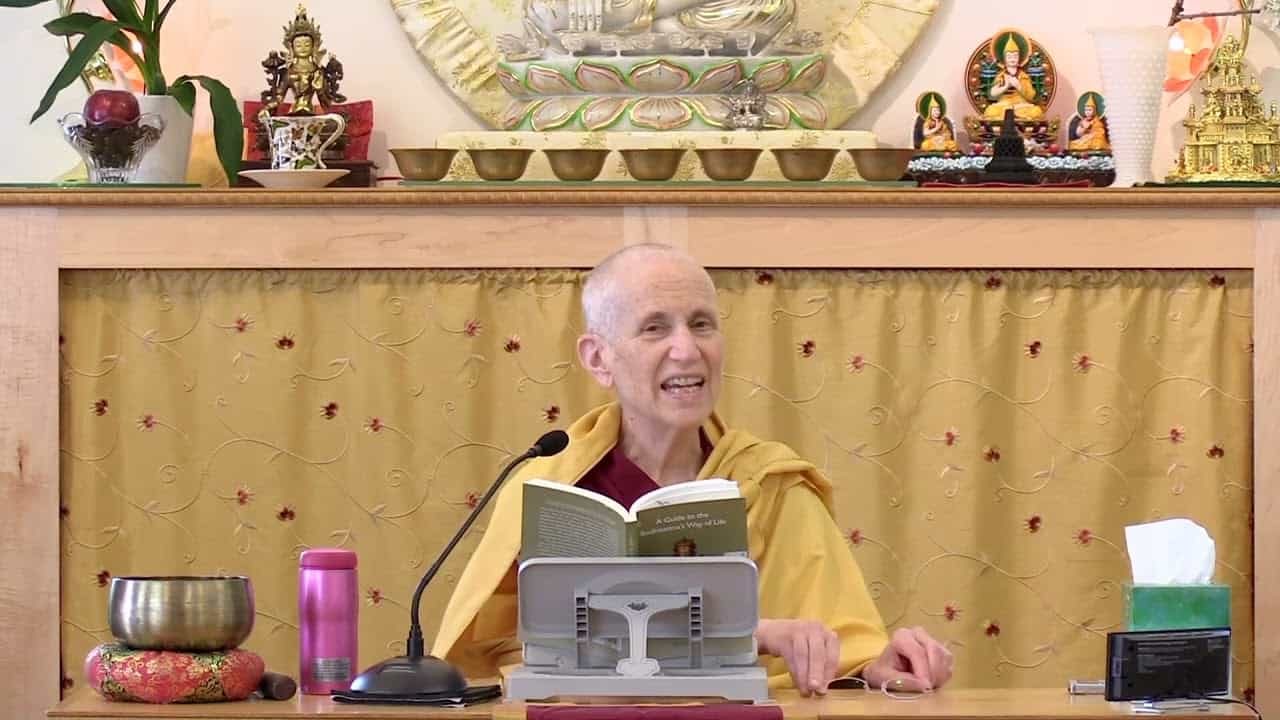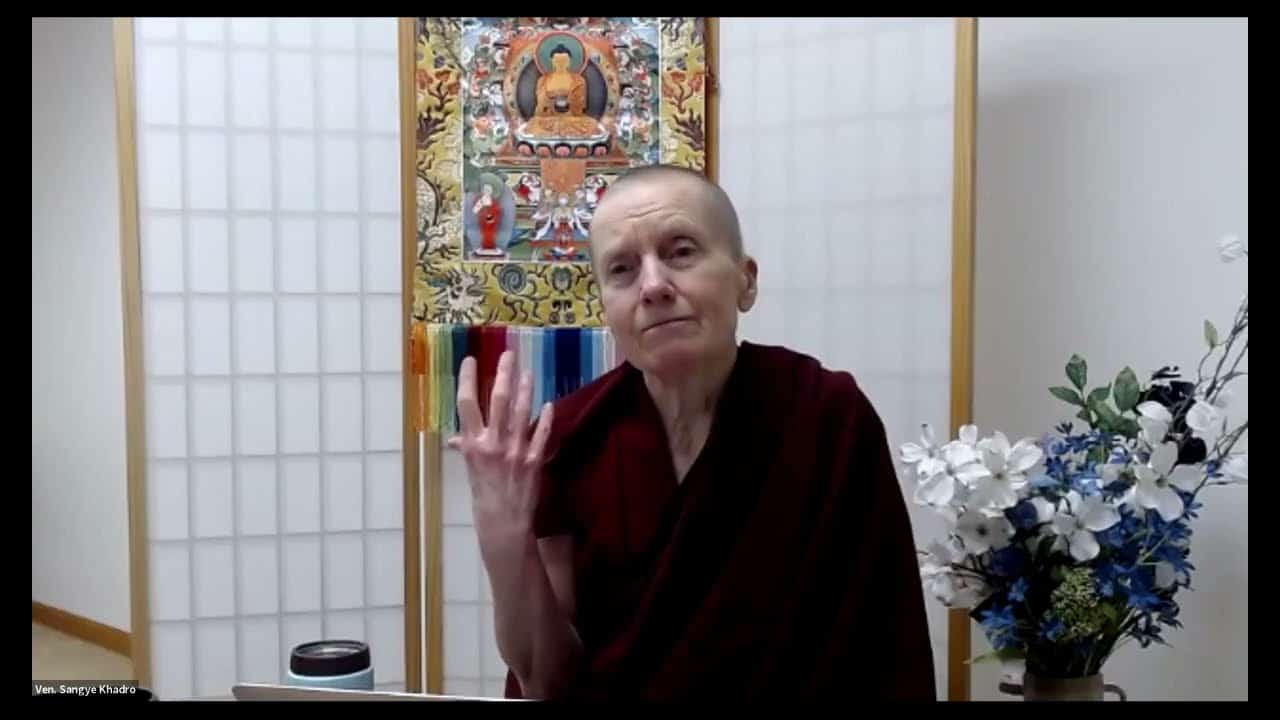Nagarjuna’s analysis of arising
66 Samsara, Nirvana, and Buddha Nature
Part of an ongoing series of teachings (retreat and Friday) based on the book Samsara, Nirvana, and Buddha Nature, the third volume in The Library of Wisdom and Compassion series by His Holiness the Dalai Lama and Venerable Thubten Chodron.
- Dependent arising and causes
- Causes of happiness and suffering
- Analysis of relationship between causes and effects
- Not from self nor others nor both nor causeless
- Result is concordant with the cause
- Examining if the result already exists in the cause
- Lack of inherent existence and dependent functioning
- Five causal links and seven resultant links
- Causes of duhkha and how to cease
Samsara, Nirvana, and Buddha Nature 66: Nagarjuna’s Analysis of Arising (download)
Contemplation points
- Samsara is not caused by an external source, a universal mind, or a cosmic substance from which everything is derived. How does grasping at inherent existence reinforce each of these wrong views?
- Look at your own experience. In what ways do you look for the causes of happiness and suffering outside your own mind? What problems has this caused in your life? Make some examples.
- How can we attain the happiness and peace we seek? What would that look like in your daily life?
- Nagarjuna asserts that if an object were permanent, it would arise in one of four ways. Take each of these four ways one at a time and use reasoning to refute it.
- Reflect on dependent arising: Think about your bad mood on a rainy workday morning – did it arise without any cause? Is it somebody else’s fault? Or was it already present in your mind in an un-manifest form? Is it God’s will? Or did it arise dependent from its own causes and conditions?
- Look into your garden, balcony planter, or the tree in front of your house, where did the plants/tree come from? Did they come from a different plant’s seeds? How do these plants or trees arise from this small seed which in no way resembles the result?
- Without looking at your notes, what are the five causal links? If you forgot, look at your notes and intentionally memorize the five. Then try to bring up the causal links from memory. Repeat this
- Describe why these five causal links are causes for the results such as feelings or birth.
- Review the three characteristics of dependent arising the Buddha described. Consider how those three characteristics apply to the existence of a material object, such as your residence. Consider how they apply to the existence of people – yourself, your friends, and your relatives. Review how nothing can arise from a cause that is itself, from something inherently different from it, and without a cause.
Venerable Thubten Chodron
Venerable Chodron emphasizes the practical application of Buddha’s teachings in our daily lives and is especially skilled at explaining them in ways easily understood and practiced by Westerners. She is well known for her warm, humorous, and lucid teachings. She was ordained as a Buddhist nun in 1977 by Kyabje Ling Rinpoche in Dharamsala, India, and in 1986 she received bhikshuni (full) ordination in Taiwan. Read her full bio.


